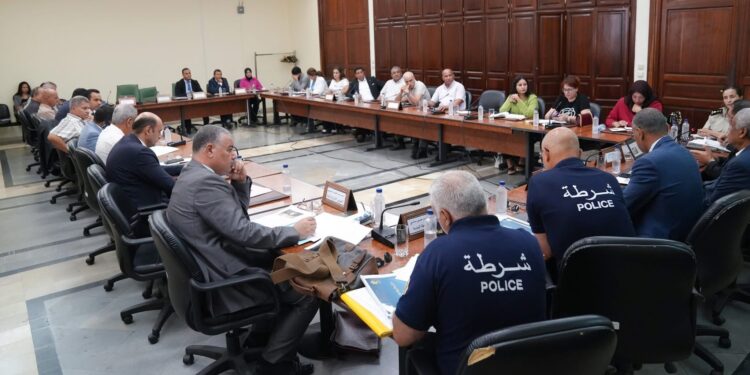During a hearing of the Ministry of the Interior, deputies of the Assembly pleaded for an in-depth revision of the code of local authorities, deemed unsuitable for the new institutional framework post-conducting of 2022. Urban planning, environment and municipal management were at the heart of concerns.
The Assembly of People’s Representatives (ARP) is moving towards a redesign of the Code of Local Communities, in the light of the institutional changes introduced by the Constitution of July 25, 2022.
Gathered Friday in the Defense, Security and Forces Commission, the deputies, the deputies interviewed officials of the Interior Ministry, calling for an urgent update of the legislative framework supervising local governance.
According to elected officials, the current code, inherited from the post-2011 period, is no longer in line with the current political and administrative architecture, marked by a refocusing of public action. They also underlined the need to revise the regional planning and town planning code, as well as urban planning plans, deemed obsolete in the face of rapid urban expansion.
Representatives of the ministry confirmed that a project to revise the local communities code is being drawn up, in accordance with the new Constitution. Among the measures envisaged is the creation of a central body dedicated to town planning, intended to coordinate municipal policies and to accelerate the update of development plans.
In their presentation, executives from the ministry said that 45% of the current expenses of municipalities are devoted to cleanliness and the environment, with a national rate of household waste of 84%.
However, the multiplicity of stakeholders complicates coordination. To remedy this, they mentioned a program to rehabilitate priority discharges, targeting in particular the areas still deprived of waste treatment solutions.
On the parliamentary side, the deputies expressed their lively concerns in the face of the proliferation of illegal constructions, the anarchic occupation of public space and the gaps in development plans in the face of urban sprawl.
They also raised persistent access to access to water and electricity networks in certain areas, calling for strengthening the role of the municipal police and the municipal guard in the application of the regulations.
Ministry officials recognized that the granting of connection permits depends on several institutions, but assured that instructions have been given to administrative delegates to accelerate the processing of regularized files. Structural legal solutions are being studied to settle these dysfunctions.
As for the missions of the police and the municipal guard, the representatives of the ministry said that they are “fully assured”, but within the limits of the available workforce. They pleaded for an increase in human and logistical resources in order to guarantee a better presence in the field and a more effective application of the law.








